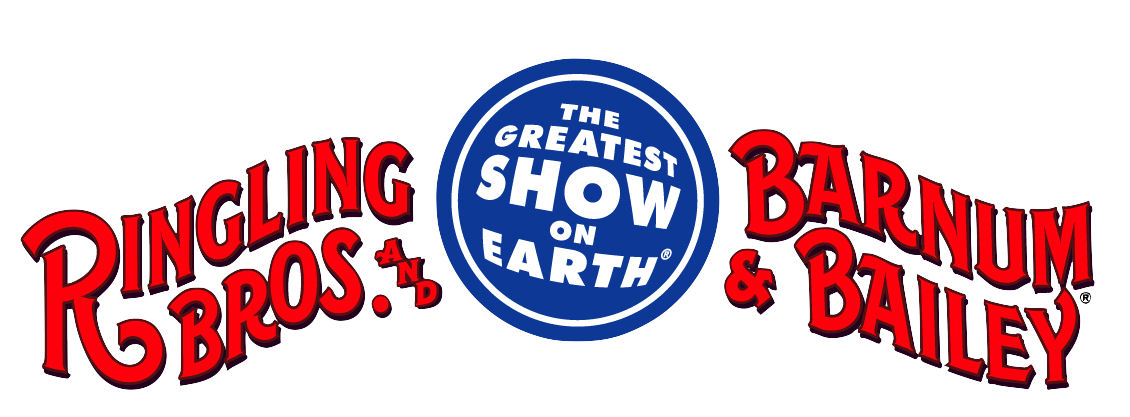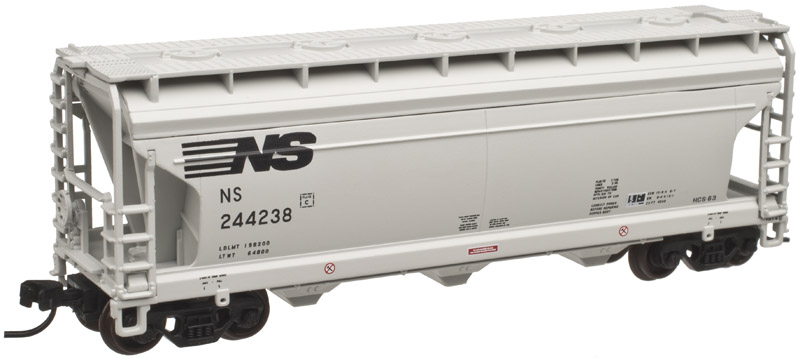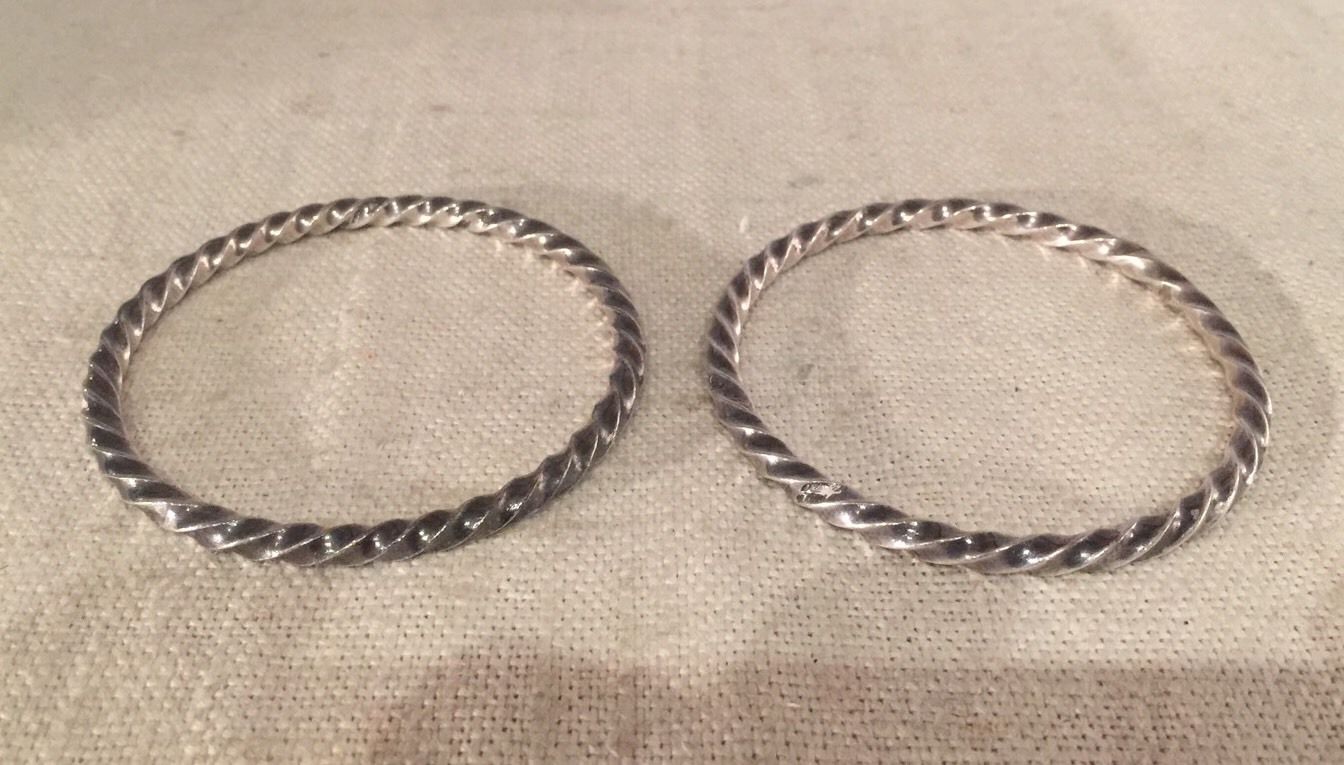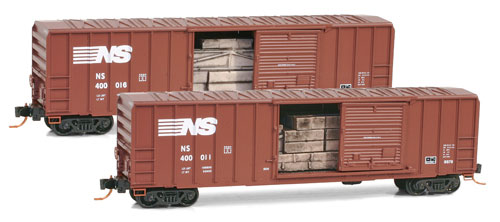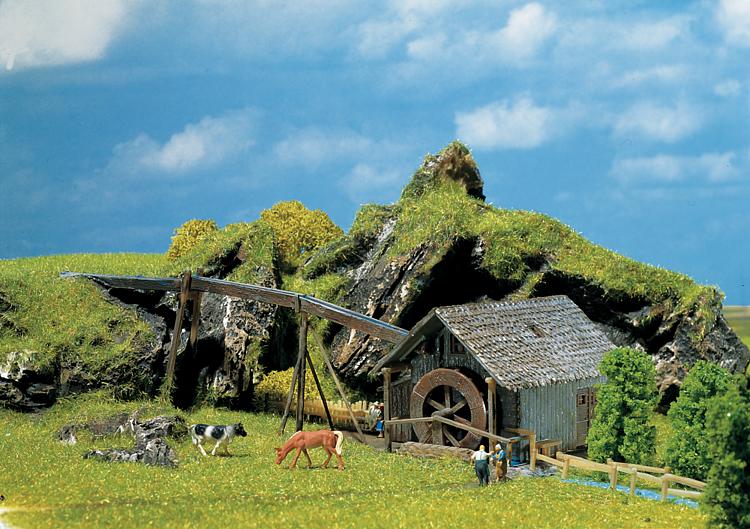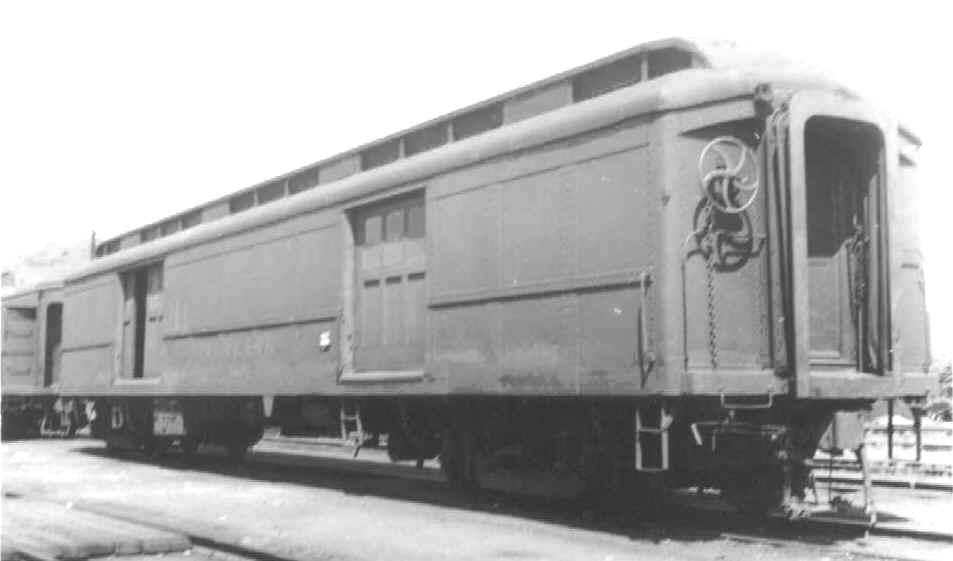Specific Item Information: Throughout the years Ringling Bros. used a variety of advertising, or ‘ad’ cars, that traveled with the train or in advance of the train to promote the coming show. These cars are based on real Ringling Bros. ad cars and are the fifth and sixth releases.
Prototype History: Heavyweight Passenger Cars were the prevalent style of railcars used for passenger service during the interwar period. They were constructed of concrete, wood and steel. The floor was often of poured concrete, which helped give these cars a smoother ride than older wooden-body cars. Also, because of their heavy construction, they were also much less likely to "telescope" when a collision occurred. They were much heavier than modern passenger cars due to the materials used in their construction. They were so heavy that they often (but not always) required three-axle bogies to support them.
Heavyweights frequently had what is called a clerestory roof. The center of the roof was higher than the sides, in that it was stepped up. The lightweight cars had smooth, rounded roofs. Heavyweight passenger cars typically weigh around 1 ton per foot of length. So a 85' car weighs in the area of 85 tons for a heavyweight car.
Heavyweights frequently had what is called a clerestory roof. The center of the roof was higher than the sides, in that it was stepped up. The lightweight cars had smooth, rounded roofs. Heavyweight passenger cars typically weigh around 1 ton per foot of length. So a 85' car weighs in the area of 85 tons for a heavyweight car.
Road Name History: Ringling Bros. and Barnum & Bailey Circus was an American traveling circus company billed as The Greatest Show on Earth. It and its predecessor shows ran from 1871 to 2017. Known as Ringling Bros. and Barnum & Bailey Combined Shows, the circus started in 1919 when the Barnum & Bailey's Greatest Show on Earth, a circus created by P. T. Barnum and James Anthony Bailey, was merged with the Ringling Bros. World's Greatest Shows. The Ringling brothers had purchased Barnum & Bailey Ltd. following Bailey's death in 1906, but ran the circuses separately until they were merged in 1919.
From Wikipedia
From Wikipedia
Brand/Importer Information: Micro-Trains is the brand name used by both Kadee Quality Products and Micro-Trains Line. For a history of the relationship between the brand and the two companies, please consult our Micro-Trains Collector's Guide.
Manufacturer Information:  Micro-Trains Line split off from Kadee Quality Products in 1990. Kadee Quality Products originally got involved in N-Scale by producing a scaled-down version of their successful HO Magne-Matic knuckle coupler system. This coupler was superior to the ubiquitous 'Rapido' style coupler due to two primary factors: superior realistic appearance and the ability to automatically uncouple when stopped over a magnet embedded in a section of track. The success of these couplers in N-Scale quickly translated to the production of trucks, wheels and in 1972 a release of ready-to-run box cars.
Micro-Trains Line split off from Kadee Quality Products in 1990. Kadee Quality Products originally got involved in N-Scale by producing a scaled-down version of their successful HO Magne-Matic knuckle coupler system. This coupler was superior to the ubiquitous 'Rapido' style coupler due to two primary factors: superior realistic appearance and the ability to automatically uncouple when stopped over a magnet embedded in a section of track. The success of these couplers in N-Scale quickly translated to the production of trucks, wheels and in 1972 a release of ready-to-run box cars.
Micro-Trains Line Co. split off from Kadee in 1990 to form a completely independent company. For this reason, products from this company can appear with labels from both enterprises. Due to the nature of production idiosyncrasies and various random factors, the rolling stock from Micro-Trains can have all sorts of interesting variations in both their packaging as well as the products themselves. When acquiring an MTL product it is very important to understand these important production variations that can greatly enhance (or decrease) the value of your purchase.
Please consult our Micro-Trains Collector's Guide

Micro-Trains Line Co. split off from Kadee in 1990 to form a completely independent company. For this reason, products from this company can appear with labels from both enterprises. Due to the nature of production idiosyncrasies and various random factors, the rolling stock from Micro-Trains can have all sorts of interesting variations in both their packaging as well as the products themselves. When acquiring an MTL product it is very important to understand these important production variations that can greatly enhance (or decrease) the value of your purchase.
Please consult our Micro-Trains Collector's Guide
Item created by: gdm on 2018-06-04 12:19:29. Last edited by George on 2024-01-26 20:29:08
If you see errors or missing data in this entry, please feel free to log in and edit it. Anyone with a Gmail account can log in instantly.
If you see errors or missing data in this entry, please feel free to log in and edit it. Anyone with a Gmail account can log in instantly.



